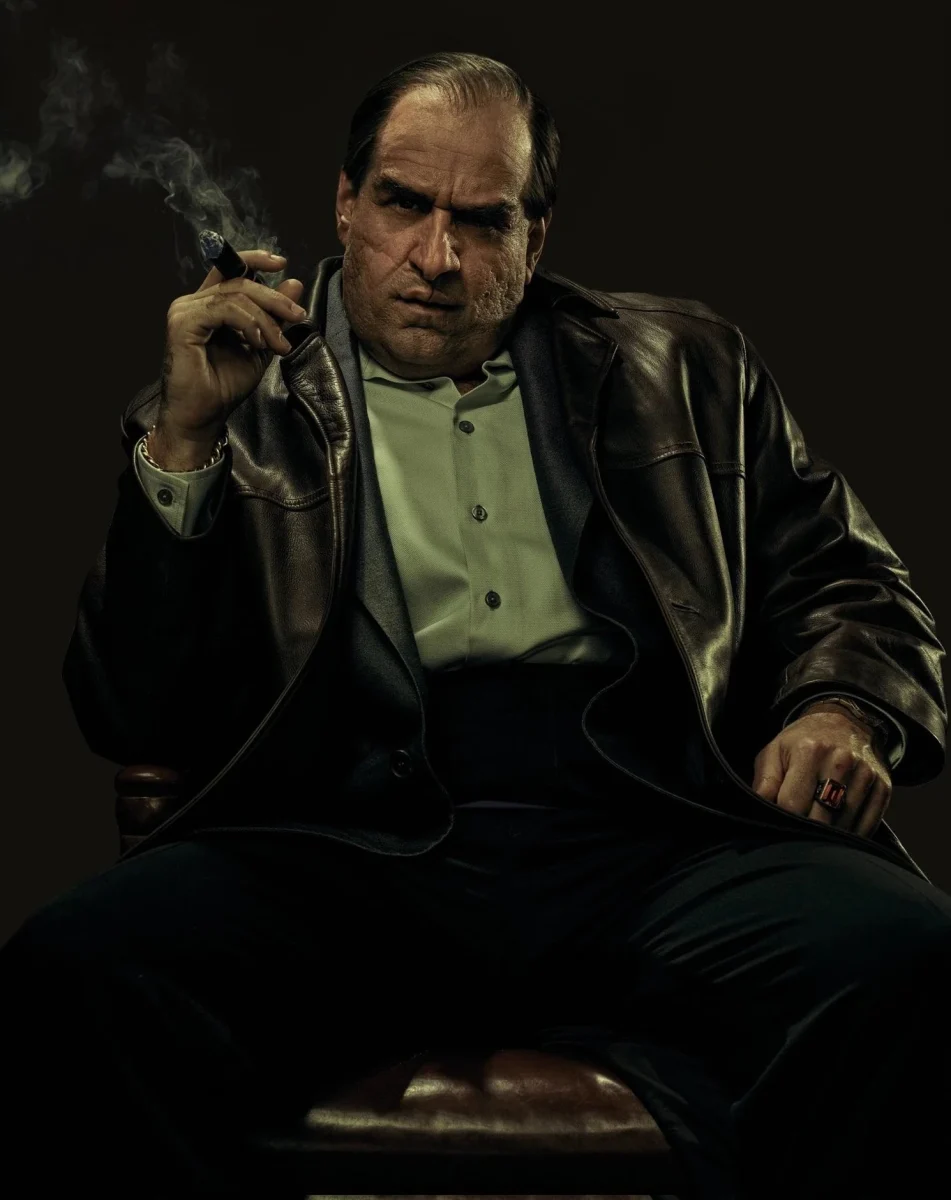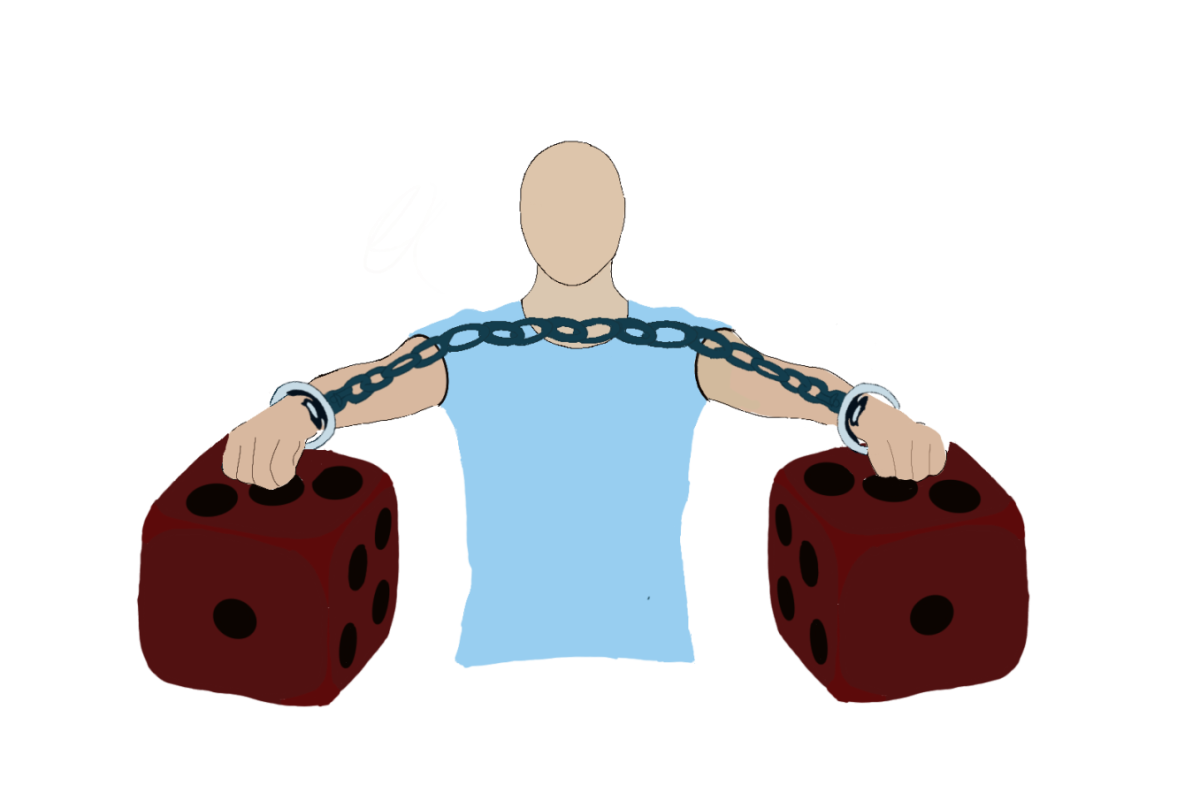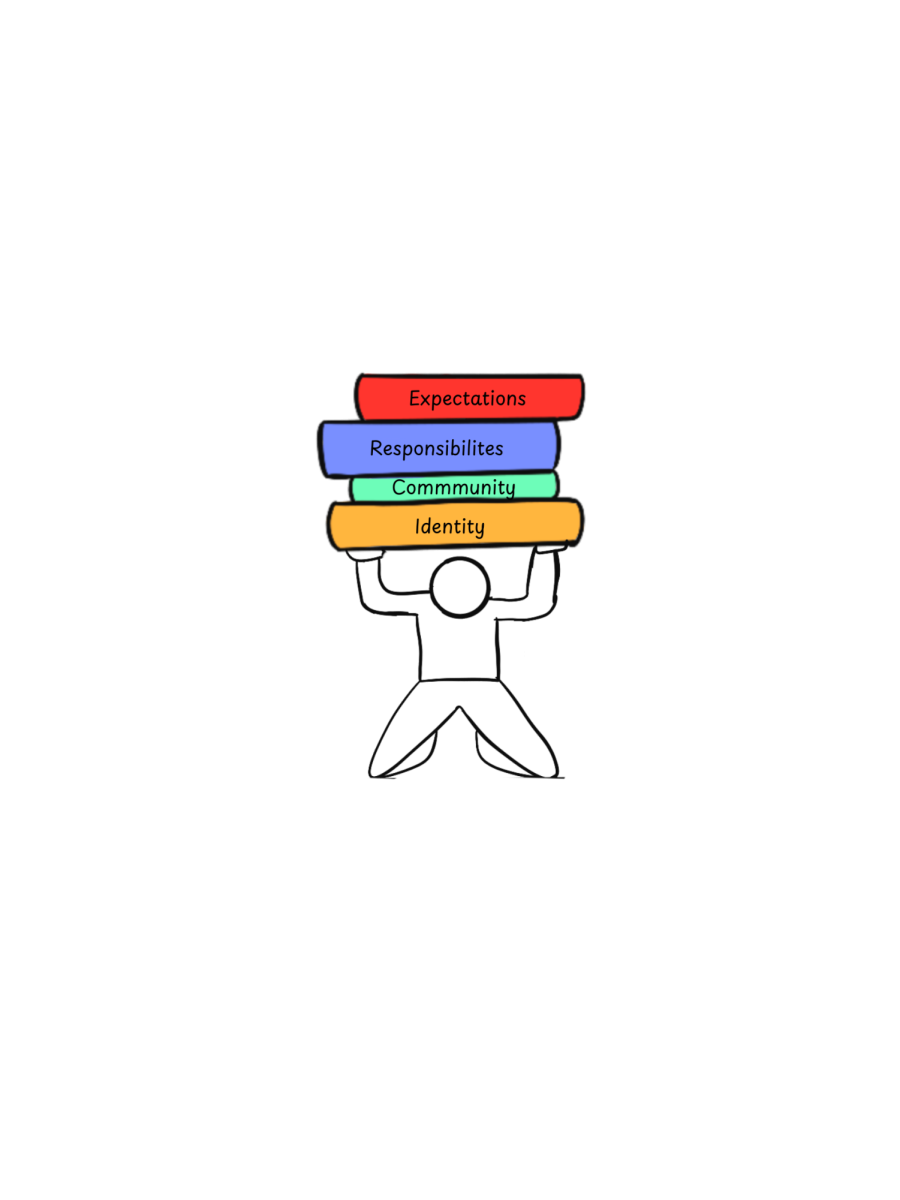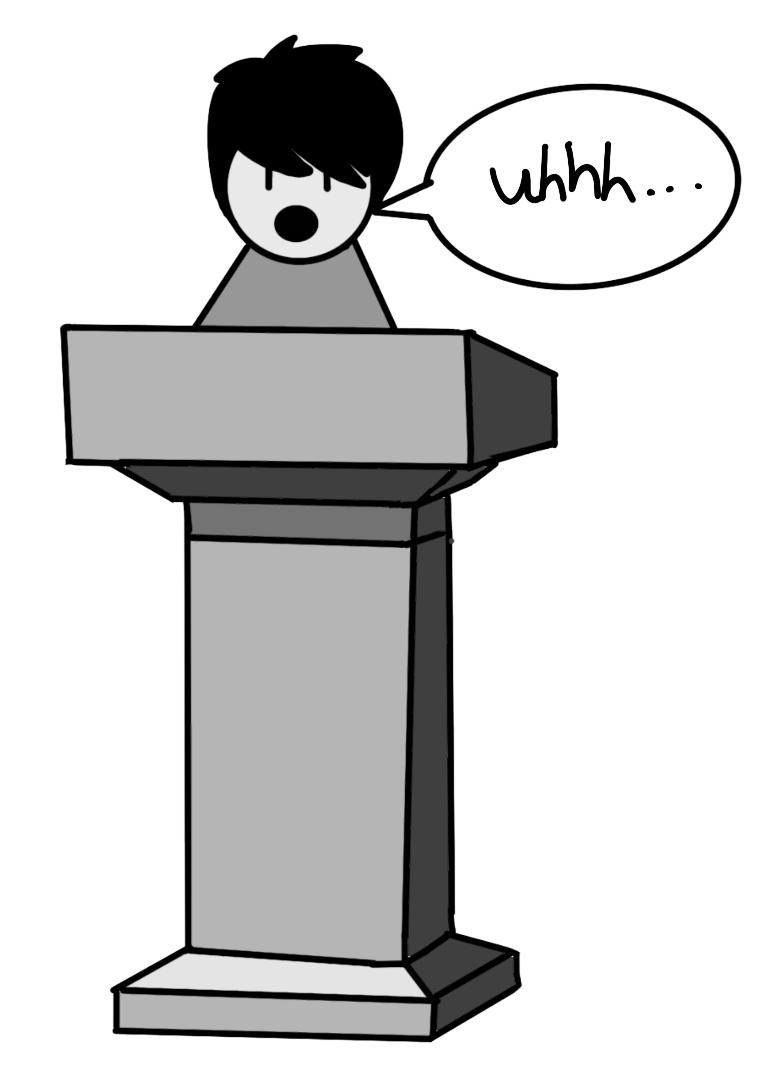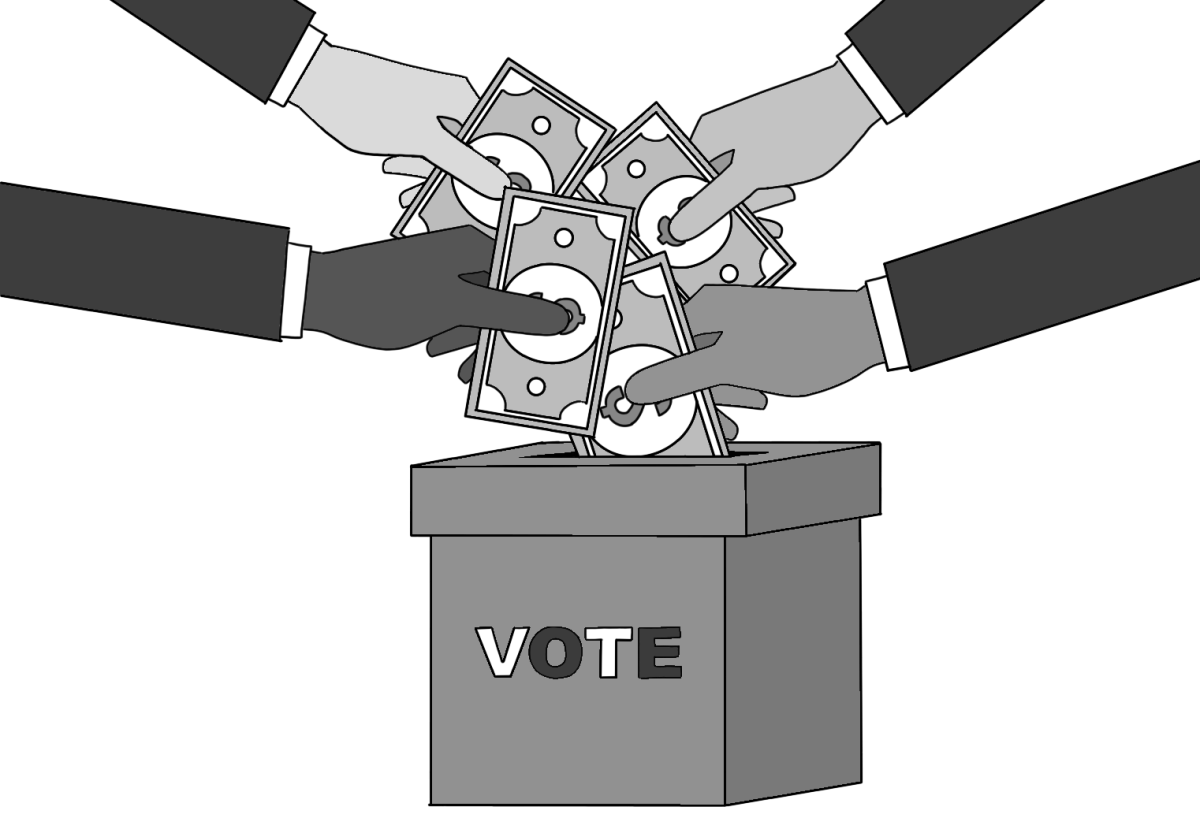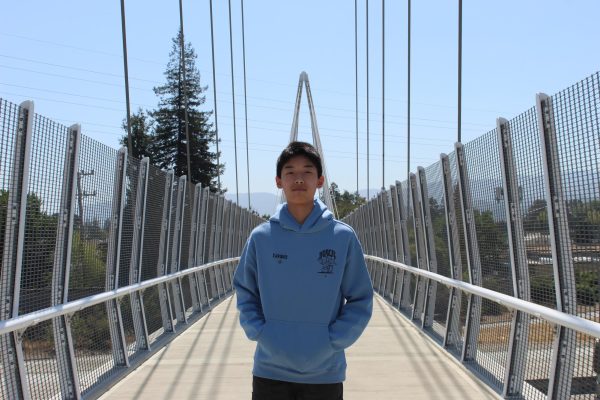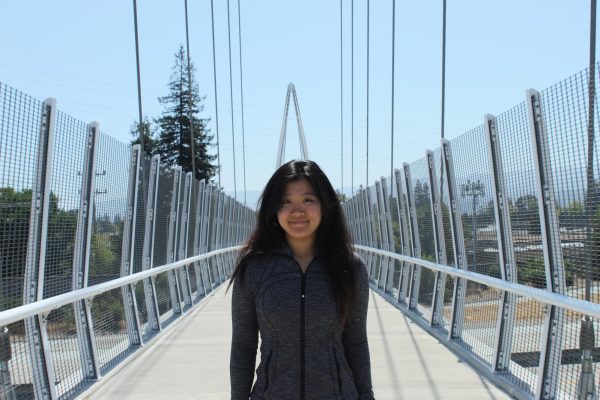After a 12-year papacy, Pope Francis died on April 21, leaving a legacy of progressiveness and morality, according to Time. During the nine-day mourning period, members of the global Catholic community reflected on his achievements and stances that led the Church in a more modern, humanitarian direction.
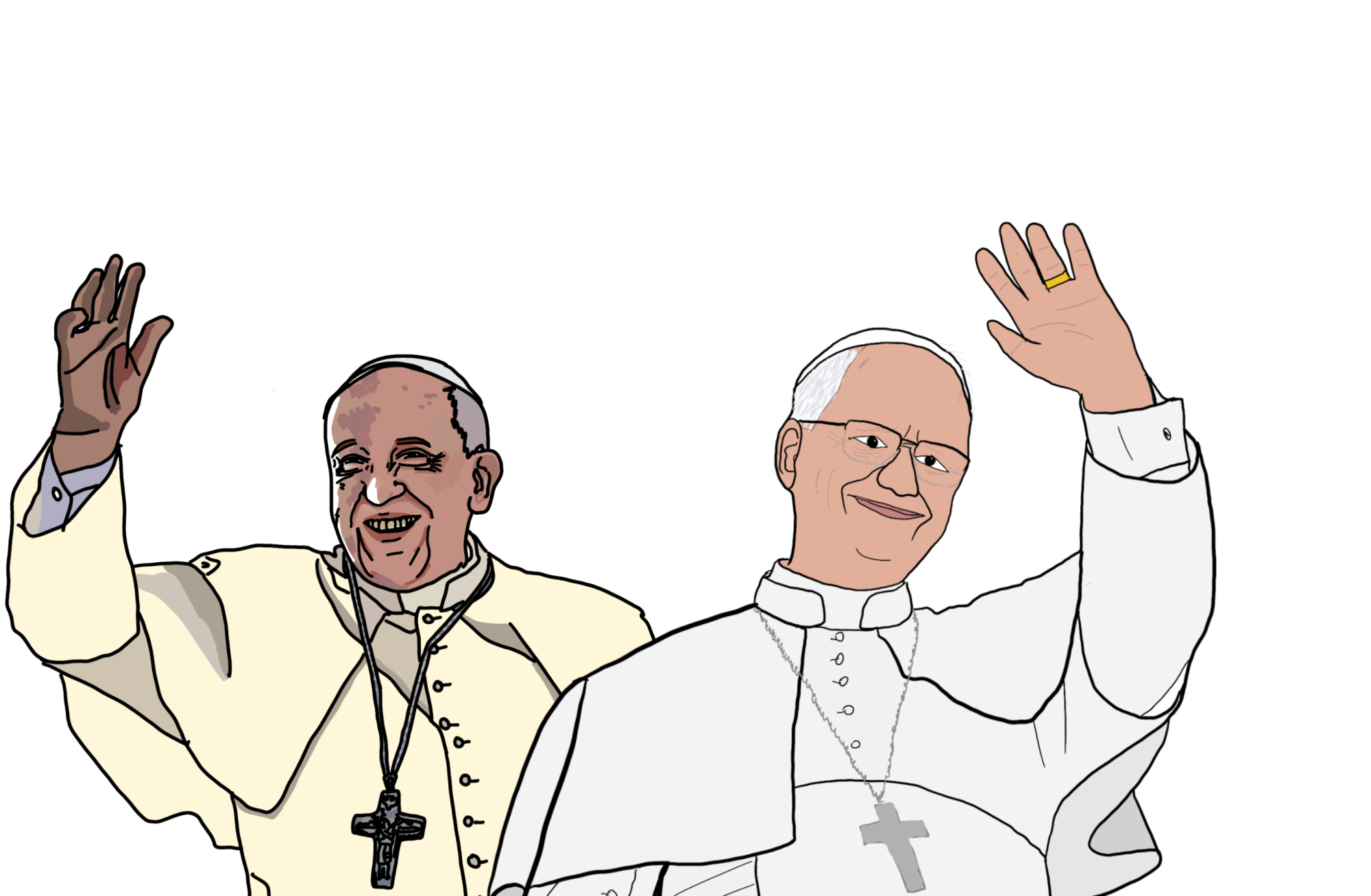
(Illustration by Vivian Kim)
As a religious figure, Francis was known for his humble, down-to-earth character, which made him a popular figure among the general public. In addition to his humility, Francis was celebrated for his actions and beliefs, which were rooted in a philosophy defined by his compassion for others.
Four days after Francis’s mourning period, the conclave elected the new Pope Leo XIV. As Leo steps forward to fill Francis’s role, he must continue Francis’s advocacy on a variety of issues to positively impact the Catholic community and the world.
Fortunately, Leo harbors many of the same beliefs as Francis did, according to NPR, sparking hope for further beneficial reform under his leadership. In the coming weeks, to continue Francis’s legacy of humanitarian concern and progressive commitment, Leo must lead the Catholic Church in a positive direction.
During his papacy, Francis made direct reforms to place more women in Vatican governmental positions and pushed global leaders to make progress on gender equality, according to AP News. This strong emphasis on fair treatment and opportunity must carry on in Leo, so that the Catholic Church will continue improving gender equality and civil rights.
Stepping into his role, Leo must include more female leadership within the Catholic Church by promoting women to governing positions. This way, he can establish more balanced perspectives behind Church policy, which will better inform decision-making on social issues.
Furthermore, Leo must advocate for efforts to tackle climate change by continuing to push for progress in global governments. In Francis’s 2015 encyclical “Praised Be,” Francis urged world leaders to reduce environmental impacts, which later inspired the Global Catholic Climate Movement, according to NPR.
Building on Francis’s actions, Leo must pressure governments and corporations to reduce environmental impacts through emission agreements and donations to cleanup initiatives. By using his influence to encourage these efforts, Leo can inspire progress on an even larger scale, honoring Francis’s values of creating a cleaner world.
Finally, Leo must maintain a spotlight on immigration measures around the world so that world governments are held responsible for the treatment of migrants. During Francis’s papacy, Francis pushed world leaders to institute more humanitarian immigration policies and criticized countries with harsher immigration measures, according to NPR.
To continue Francis’s fight for migrant rights, Leo must hold discussions with world leaders to enact more humane immigration policies, such as instituting financial support systems for immigrants adjusting to their new countries. By doing this, Leo can use his influence to benefit underserved communities.
At the same time, the public must stand behind Leo’s advocacy and push government leaders to institute these reforms. While considerable, Leo’s influence is limited without widespread support. People must answer his calls to create a louder voice for change, paving the path to a brighter future for the world.





